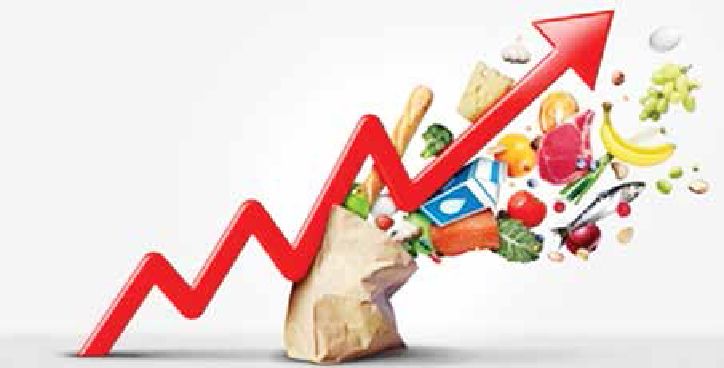Economists decry high production costs as inflation hits 22.79%

The recent information presented by the National Bureau of Statistics indicates that Nigeria's inflation rate reached 22.79% in June 2023, marking the sixth consecutive increase.
The rate of inflation in the largest economy of Africa increased to a record high of 22.79 percent in June 2023, surpassing the previous month's rate of 22.41 percent.
According to the NBS report, the inflation rate for June 2023 increased to 22.79 percent compared to the inflation rate of 22.41 percent in May 2023.
Analyzing the trend, the inflation rate for June 2023 experienced a rise of 0.38 percentage points in contrast to the inflation rate recorded in May 2023.
Compared to the inflation rate of 18.60 percent in June 2022, the headline inflation rate for the same period this year was 4.19 percentage points higher.
This indicates that the rate of inflation, as indicated by the headline inflation rate, rose in June 2023 when compared to the corresponding month of the previous year, specifically June 2022.
It was observed that the category of food and drinks without alcohol (11.81 percent) topped the list of factors that influenced the increasing inflation rate.
Economists, nonetheless, expressed the view that a comprehensive approach was necessary to address inflation.
According to Prof Segun Ajibola, a former President and Chairman of the Council at the Institute of Chartered Institute of Bankers of Nigeria, it is crucial to address Nigeria's skyrocketing inflation in a comprehensive manner.
Ajibola, who also holds a position as an economics professor at Babcock University, stated, "The underlying challenges persist. Confronting these matters head-on is essential in tackling the issue of inflation."
"It calls for a comprehensive strategy. Numerous elements must be synchronized and various issues must be addressed. Particularly, factors that escalate production expenses and those that impact the agricultural sector."
Showing optimism in the new government's ability to combat inflation, Ajibola expressed, "I am confident that we will witness improvements based on the limited information we have so far. There will be an increase in skilled individuals and the implementation of more effective policies."
Dr. Yemi Kale, the head economist at KPMG Nigeria, has recently stated that while the elimination of subsidies may have overall positive effects, there will be certain drawbacks resulting from the direct hikes in energy costs, inflation rates, and transportation fees.
He stated, "This disturbance has an incidental influence on the escalation of food costs and consumer requisites. This is due to the fact that their buying strength is diminished; consumer requisites also contract unless the government offers some form of assistance to alleviate the consequences.
Moreover, families will start reducing their spending, resulting in businesses experiencing a decline in consumer demand alongside the growing expenses of running their operations. This is expected to have a significant impact on the Micro-Small and Medium-sized Enterprises sector, ultimately resulting in job cuts, which will consequently elevate the unemployment rate and create job security concerns.
According to KPMG Nigeria, if fuel subsidies are eliminated in Nigeria, there is a possibility of a substantial increase in the country's inflation rate. This increase could potentially reach 30% by June 2023.
According to a study conducted by KPMG, eliminating the article, whether fully or partially, would result in a momentary increase in inflation.
According to the NBS, as stated on their Twitter account, the removal of fuel subsidies and the equalization of exchange rates have not yet had an effect on the overall inflation rate in the nation. This is the reason for the slight rise that has been observed.
The consumer price index figures for June might not completely reflect the consequences of the elimination of the fuel subsidy and the merging of the exchange rate.
This occurs because the process of gathering data for calculating the rate during a particular month usually concludes around the middle of that month. Therefore, the statistics for June only represent roughly two weeks of how the policy has affected consumer prices.
The complete impact of the policy on prices cannot be solely determined in the month of June. It will also be influenced by actual prices observed in various marketplaces throughout the country in the following months.



